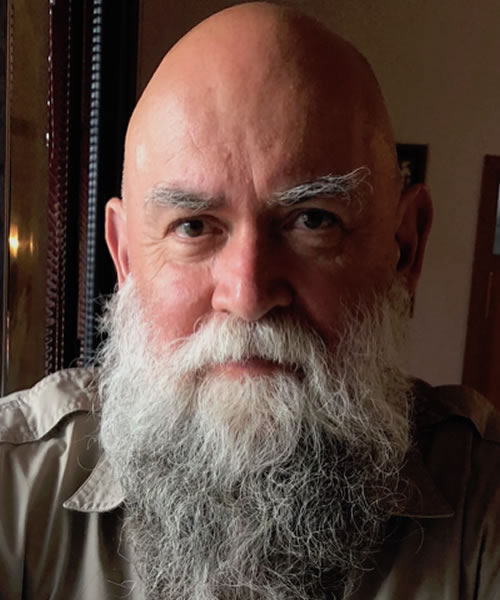The searches uncovered publications demonstrating the lack of a clear boundary between religion and politics in Orthodoxy. One brochure purportedly “contain[ed] propaganda of religious intolerance.” However, the problem is that religious issues represent a fundamental conflict over identity, as seen from the first page of this brochure which asserts that only a “mother church” can grant autocephaly, as “was granted the Russian Orthodox Church by the Constantinopolitan Mother Church in 1448.” The implication is that from 1448 all Orthodox on the territory of contemporary Ukraine jurisdictionally belong to Moscow (their new mother church), not Constantinople. Again, superficially this suggests the current conflict is religious. Moscow’s claim that Ukraine’s Orthodox Christians are “children” of Moscow reaches much deeper into contemporary Russian politics than many recognize.
Russia’s political and religious leadership throughout history has consistently claimed that Moscow is the proper successor of medieval Kievan Rus. This underlies the Russkiy Mir claims of Putin. However, rather than some peripheral ideological formulation of a Russian ruler, this is a central tenet of historical Russian cultural identity. It denies the validity of a separate Ukrainian identity and consequently a unique Ukrainian Orthodoxy. In 2008 Putin pronounced Ukraine a historical mistake! This ideology permitted Russians to believe that the illegal annexation of Crimea (2014) returned the place of Prince Volodymyr’s baptism to the mother church. Putin’s 2016 unveiling in Moscow of an immense statue of Prince Volodymyr is understandable once Kiev is constructed as a daughter of the Muscovite church. Finally, the Kremlin asserted that it is not interfering in church matters, but “defend(s) the interests of Orthodox Christians” in Ukraine: the mother church expresses maternal care.
Another narrative exists in Ukraine. Many contend that, ironically, Putin’s interference in Ukrainian affairs has done much for Ukrainian national identity. Following the end of the Soviet Union, the flourishing religious life of Ukraine did not bring harmony among churches. Ukrainian Greco-Catholics collided with Orthodox and Roman Catholic hierarchies regarding church property held by the Ukrainian Church until authorities confiscated and either closed or redistributed it. Orthodox divided into three antagonistic jurisdictions. Tensions arose within the Ukrainian Orthodox Church (Moscow Patriarchate) between the pro-Moscow faction dominating the hierarchy and the pro-Ukraine group. Despite political efforts to unite the Orthodox groups into one autocephalous church, the animosities created a centrifugal force obstructing Orthodox unity.
Two decisions made in Moscow have transformed the environment. Six days before the start of the Great and Holy Council of the Orthodox Church in 2016, Moscow withdrew - a decision reflecting Moscow’s persistent undermining of Constantinople’s primacy of honor in the Orthodox world. Consequently, Constantinople became less willing to tolerate Moscow’s manipulations. Simultaneously, Moscow’s hand in the Maidan protests (2013-2014) and the Russian-instigated war in the east significantly lowered public opinion towards Russia. The increasing recognition of Russia as an “aggressor state” led over 100 parishes to defect from the Moscow to the Kievan Patriarchate.
Over the past two years, leaders of the non-Muscovite Orthodox churches and the predominantly Orthodox political elite have recognized that now was an opportune time to engage Constantinople in a historic gesture benefitting both parties: re-establishing Constantinople’s status as the mother church, creating an autocephalous Ukrainian Orthodox Church with canonical status, and subverting Russia’s religious, cultural, and political claims on Ukraine. Thus the events of the last two months fundamentally challenge Russian religious and political identity. Moreover, an autocephalous Ukrainian Church and its probable popularity would affect the Kremlin’s budget. The loss of Ukraine, which has the largest number of parishes tied to Moscow, would be financially detrimental to the Russian Orthodox Church and Russian state; some hierarchs of the Russian-affiliated church overtly support a “unified” Orthodox Church. Politically this initiative for autocephaly would deny Russia’s claim as defender of Orthodoxy and threaten Russian church-state relations.
Hence, Russian aggression in the Sea of Azov is neither accidental nor insignificant. As Putin’s former adviser, Andrei Illarionov, stated: autocephaly “is comparable to the collapse of the Soviet Union and the Russian Empire . . . And, obviously, [Putin] is preparing a response to Ukraine to either prevent autocephaly (. . .), or somehow ‘punish’ Ukraine for achieving it.” The economic strangling of eastern Ukraine via a blockade of the Sea of Azov is indeed a weighty punishment.

